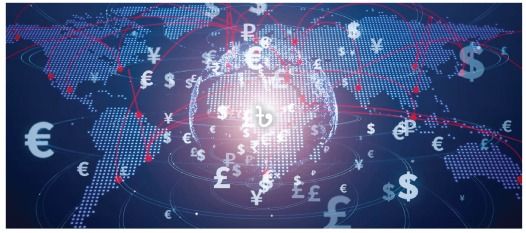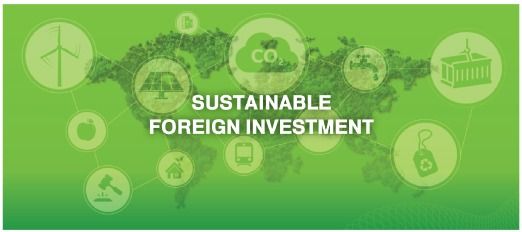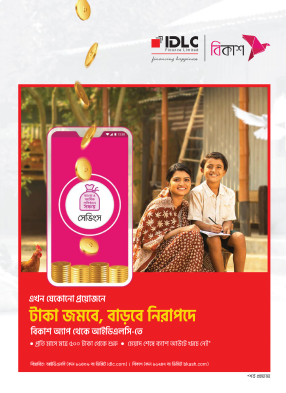- info@ficci.org.bd
- |
- +880248814801, +880248814802
- Contact Us
- |
- Become a Member
- |
- |
- |
- |
- |

Unpredictable regulations are deterring investors; Bangladesh must offer clarity and consistency to unlock its full investment potential
Bangladesh's journey with Foreign Direct Investment (FDI) has been a topsy-turvy one that witnessed both sharp growth and significant fluctuations over the last two decades. From the early 2000s surge driven by textile investments to the highest-ever FDI flow in 2018, [1], the country's FDI records underscore both tremendous opportunities and perennial structural challenges. Today, Bangladesh stands at a critical juncture, where its great economic potential is mired in regulatory uncertainties.
The country has a demographic dividend with over 100 million working-age citizens, strategic positioning between South and Southeast Asian markets, and a rapidly expanding consumer base with increased purchas- ing power. However, regulatory inconsistency remains a significant drawback that could either spur or stall the next wave of foreign direct investment.
Policy uncertainty refers to the absence of predictability and clarity in a nation's institutional frameworks, rules, and economic policies. Lacking such a policy can make investments seem riskier, which can put off foreign investors who may be worried about unfavorable policy developments that could reduce their rate of return on investment.

Recent FDI trends show a contrasting picture. The net inflow of foreign direct investment in Bangladesh fell by 13.20 per cent to USD 1.27 billion in 2024, down from USD 1.47 billion in 2023. As per the World Investment Report 2025 from UN Trade and Development (UNCTAD), this marks the fourth straight year of declining FDI since 2021. [2]
The January-March quarter of 2025 shows little ray of hope as Bangladesh saw a significant surge in net foreign direct investment (FDI) during the period, driven by a sharp rise in intra-company loans and strong equity investments, according to data from the Bangladesh Bank (BB). [3]
If we go through the UNCTAD's World Investment Report 2024 [4], it shows that Textiles & Wearing, the sector that has been the largest contributor in country's FDI flow continues to be the top contributor that attracted USD 435.78 million, followed by Banking at USD 229.73 million, Chemicals & Pharmaceuticals at USD 123.79 million, Gas & Petroleum at USD 117.24 million, and Telecommunication at USD 102.92 million.
It comes as no surprise that Agriculture & Fishing [at USD 57.42 million], and Leather & Leather Products [at USD 53.88 million] are the two sectors sitting at the bottom, despite both sectors having huge potential to attract a substantial amount of FDI [UNCTAD Report 2024]. The country is missing out on opportunities in these sectors due to bureaucratic hurdles, complex regulations, and slow implementation of policies.
While the phrase 'Bangladesh does not suffer from a lack of potential' may have become a cliché, the gap between potential and performance continues to widen with each passing year. Vietnam, with which we shared comparable FDI flows in the early 2010s [USD 1.2 billion], has now outpaced us by a wide margin. Fast forward to 2025, Bangladesh's net FDI stands at 865 million USD in the first quarter of the fiscal year, while investors poured in a whopping USD 11.7 billion in the same period in Vietnam. [5]

The core of regulatory consistency consisted of three key components, which included unchanging political influence on policy frameworks alongside uniform rule implementation and minimal retroactive changes to safeguard current investments.
The level of predictability serves as a direct factor in building investment confidence. The ability of investors to predict policy directions leads them to develop extended business plans while making significant investment commitments and facilitating technological transfer activities.
Investment costs decrease through predictable regulations, but unexpected regulatory unpredictability functions as an invisible financial burden on capital investments. The frequent change in economic policy has a greater chance of negatively impacting foreign investors' investments and possibly discouraging them. In other words, surprises are seldom welcome in the investment world.
For instance, in January alone, the government increased taxes on around 100 products. While revenue generation matters, such abrupt decisions create a perception of policy whiplash. Investors don't fear reasonable taxation; they fear unpredictability. [6]
This scenario could have been largely avoided by having inclusive consultations with affected industries before initiating major policy changes. Meaningful stakeholder consultation serves many purposes: it acquaints policy- makers with ground reality, identifies implementation bottlenecks in advance, allows for phased implementation that minimizes market disruption, and obtains industry buy-in that facilitates implementation. The businesses, if consulted early, are in a position to offer practical inputs that allow policies to be more effective while diminishing the likelihood of costly reversals.

For instance, countries like Singapore have established their position as a foreign direct investment magnet through two fundamental principles: clear regulations and a predictable business environment. Investors understand the regulatory framework and its application as well as the precise procedures for changes to take place.
Bangladesh, unfortunately, operates differently. The same regulation gets interpreted differently across sectors, and investment incentives disappear mid-project. This creates the extra cost investors demand for navigating uncertain environments.
This unpredictability stems from a broader trend in policymaking where policymakers have a tendency to aim for low-hanging fruit when it comes to addressing fiscal and regulatory issues. Rather than widening the tax net, the government has a tendency to increase taxes on highly taxed goods such as tobacco.
Similarly, rather than establishing predictable regulatory frameworks, authorities resort to ad hoc policy changes that catch businesses off guard.
The recently proposed amendment to the Smoking and Usage of Tobacco Products (Control) Act, 2005 (as amended from time to time) was an opportunity to address some of these concerns. Unless the amendment ensures inclusivity of the stakeholders, the country's socio-economic context, and outlines clear timelines and transitional policies, the reform may remain symbolic. Overly rigid measures may weaken the formal sector and reduce the government's ability to generate consistent revenue.

The economic cost
Policies that lack stability push investment capital toward safer locations, which reduces investment opportunities. Unstable regulations during extended development periods make it impossible for investors to handle regulatory uncertainty. According to the UNCTAD 2023 report [7], Bangladesh suffers from USD 3 to 4 billion yearly FDI reduction because of regulatory obstacles. Our system's lack of uniformity in policymaking prevents us from accessing global value chains. Sectors that depend on stable tariffs and ongoing policy stability for export purposes face heightened risks from these conditions.
The current conditions negatively affect both businesses operating in the local market and those operating internationally. The beverage industry growth rate declined to 20-25 per cent because of supplementary duty increases and minimum taxation, which resulted in decreased government revenue from approximately Tk 200 crore during the first half of 2023 to Tk 170 crore during the second half. The implementation of a 3 per cent turnover tax in June 2023 resulted in a significant revenue reduction that brought the industry's earnings down to half of their previous value. The revenue plummeted from Tk 1,071 crore during July-September 2022 to Tk 865 crore during the same period in 2023, which also dropped below the 2021 values. [8], [9].
The tobacco sector tells a similar story. Except for the Covid-19 impacted year, the tobacco industry consistently delivered annual government revenue growth of 12-15 percent over the past decade. However, in fiscal year 2024-25, this growth collapsed to around 5 percent; marking the first time in around ten years that revenue growth fell into single digits.
The answer to this problem does not call for dramatic shifts; rather, it requires consistency in development.
The existing foreign investors must be engaged in the decision-making process as they essentially serve as the official ambassadors for Bangladesh's investment climate. While negative experiences shared by current FDI companies can deter potential investors, positive testimonials from these groups can also serve as strong factors for attracting fresh investments.
A predictable fiscal policy framework spanning multiple years is also essential. Sudden tax hikes create market distortions and reduce compliance. A simplified tax structure, developed through stakeholder consultation, can improve revenue collection while reducing evasion, as well as creating fair competition between multinational and local companies.

Furthermore, foreign chambers of commerce also have a significant role in this process. They can facilitate regular dialogue between the government and investors that will allow policymakers to access practical field knowledge before finalizing regulations.
Another vital step for building investors' confidence is to have predictable regulations. Policy consistency signals that Bangladesh is a reliable investment destination, encouraging both existing investors to expand and new investors to enter the market.
Overall, the government must adopt a more inclusive approach to policy development. Regular consultation with stakeholders ensures that policies are realistic and implementable. This collaborative approach can help Bangladesh achieve its middle-income status through sustained foreign investment.





